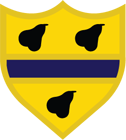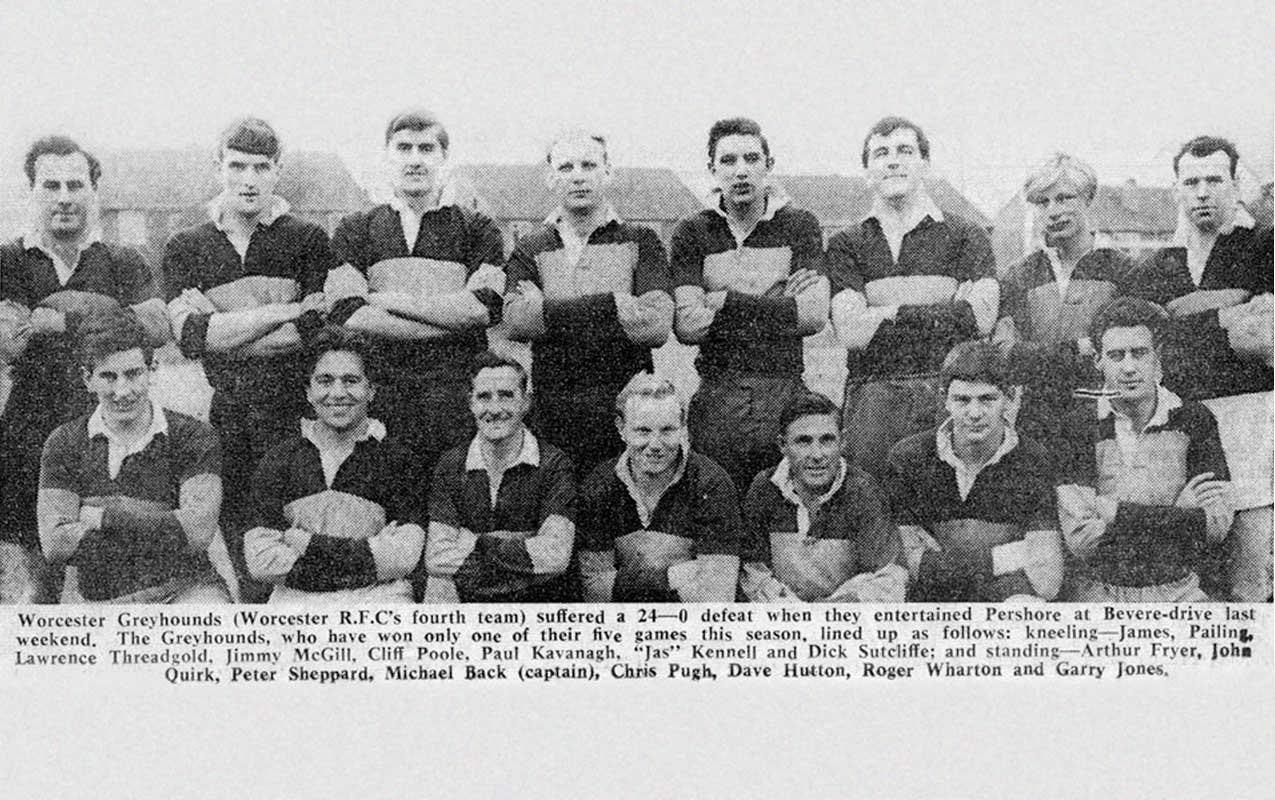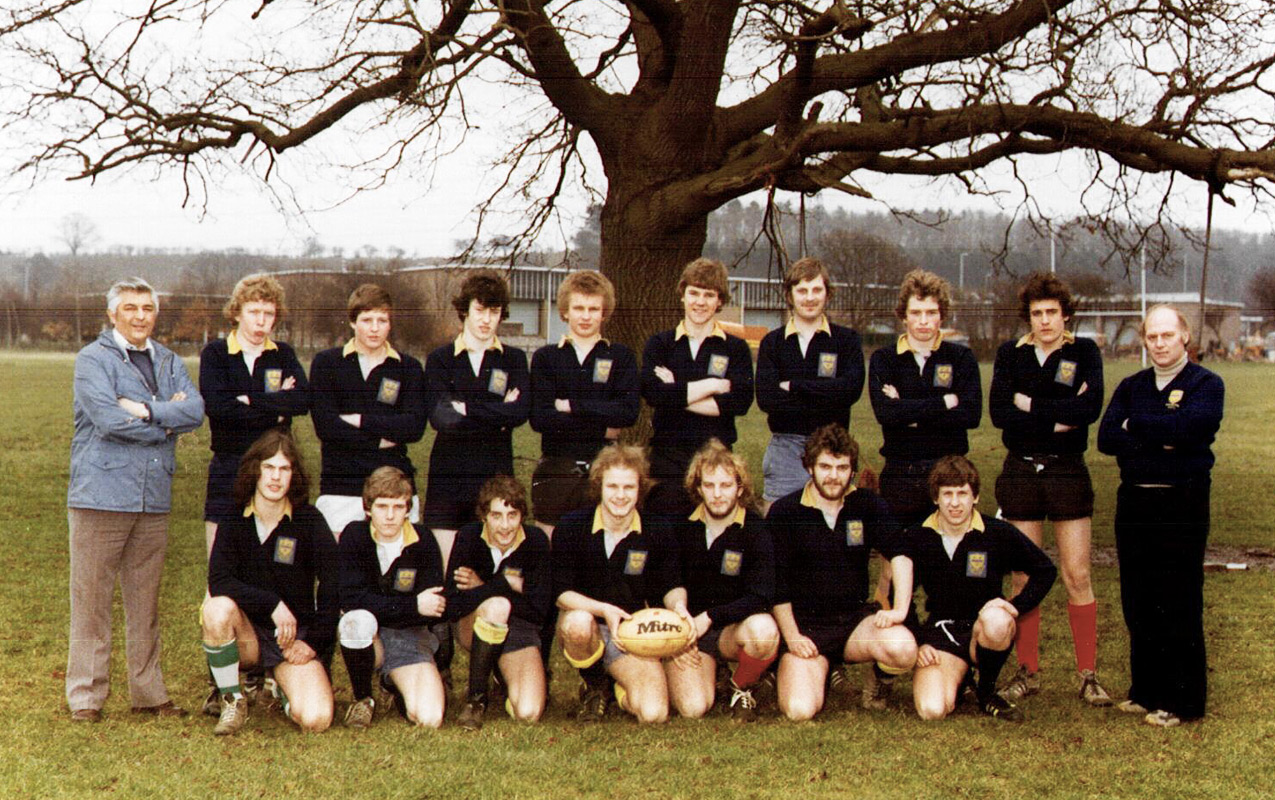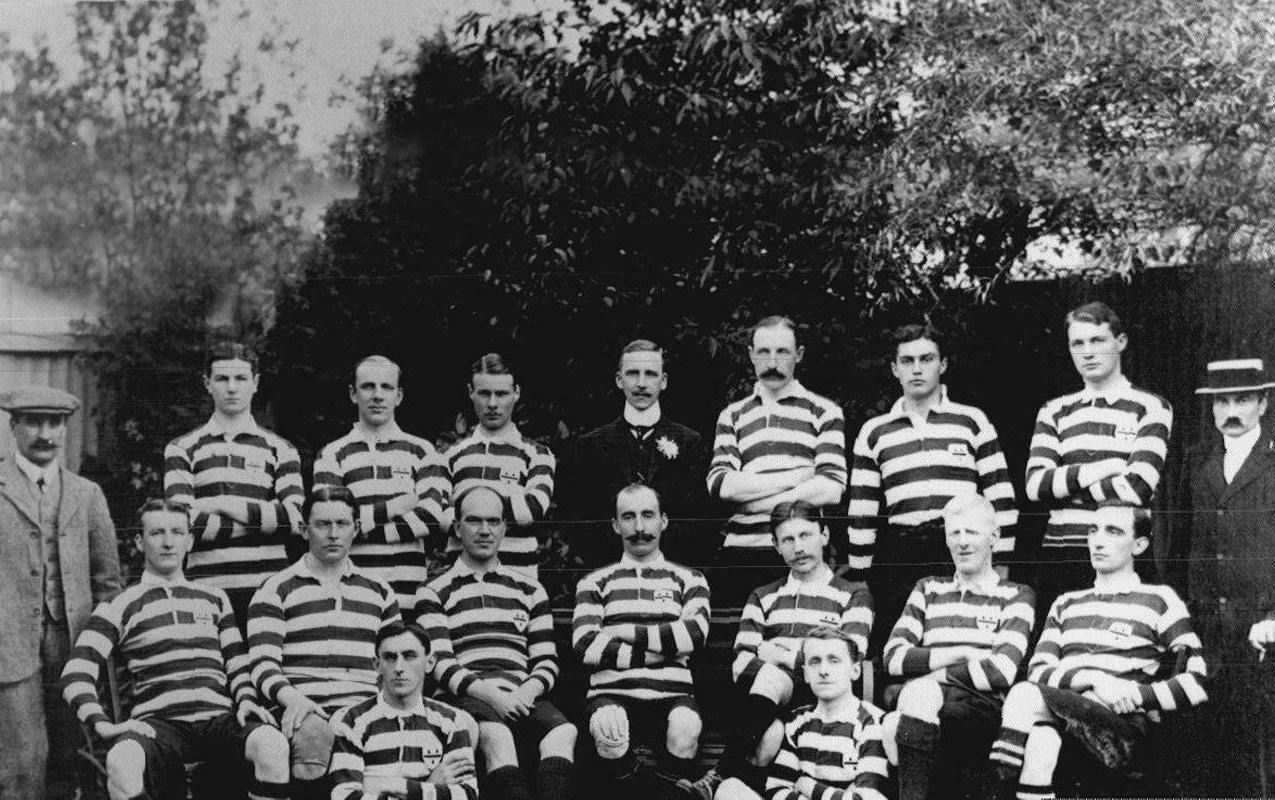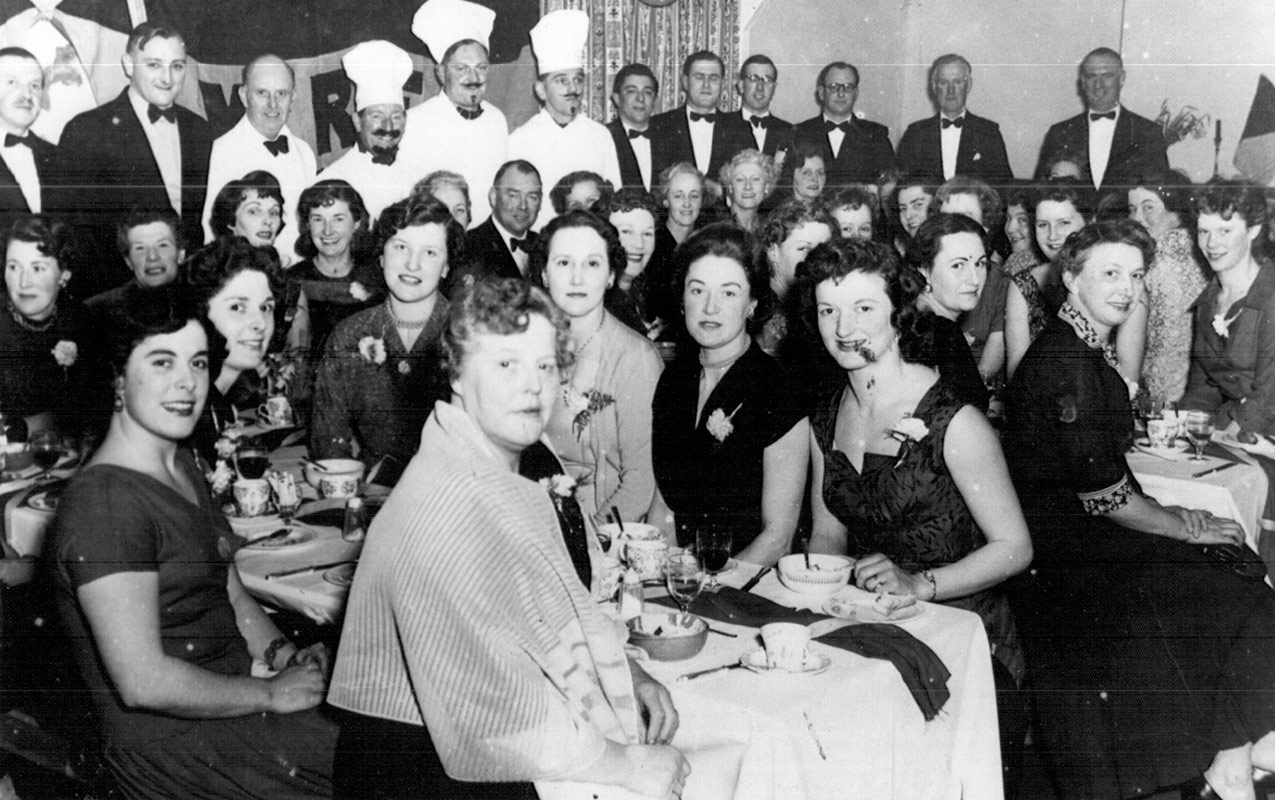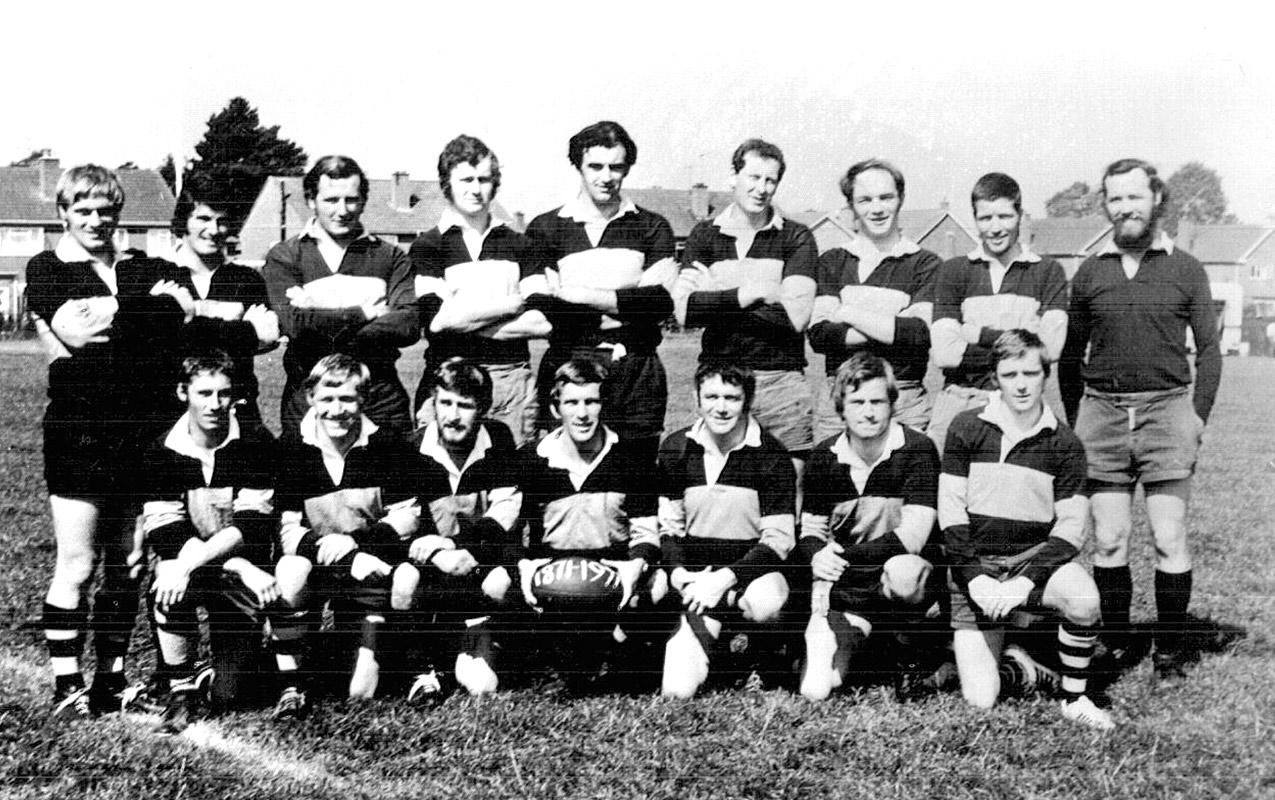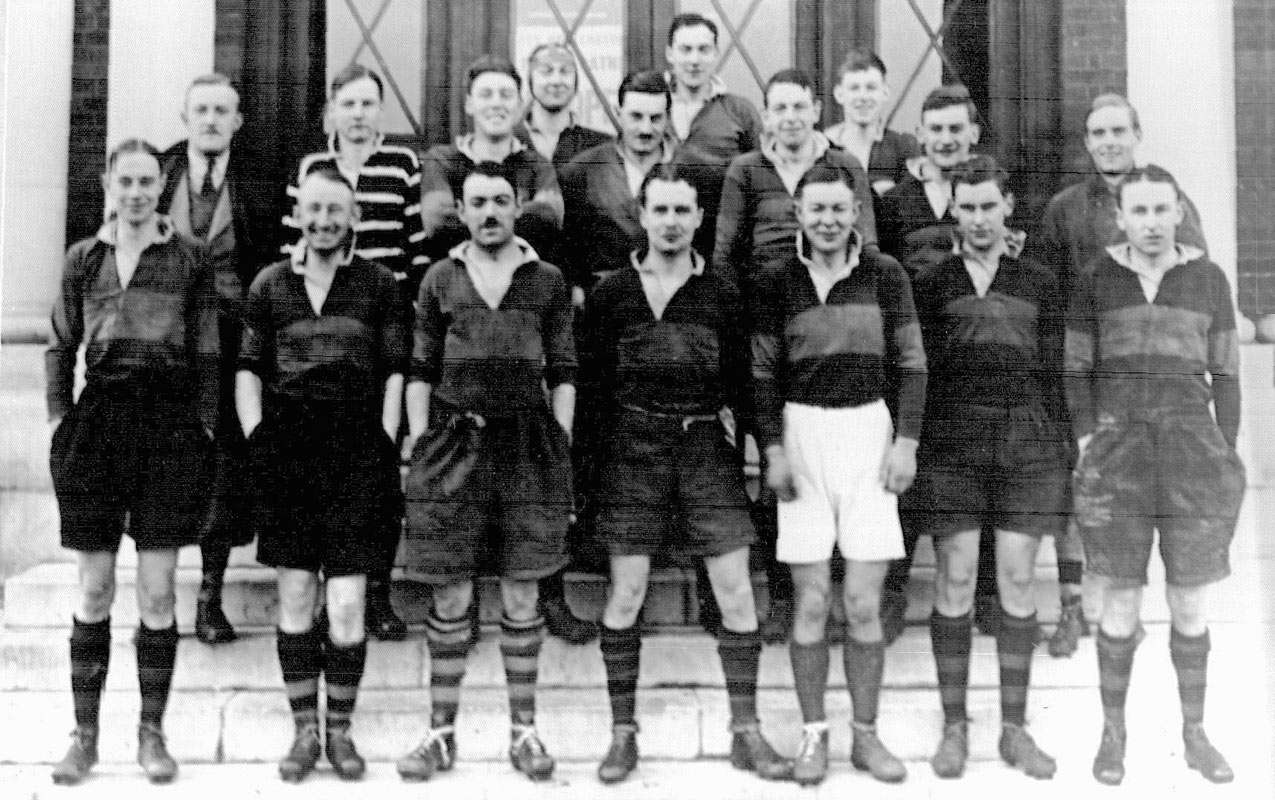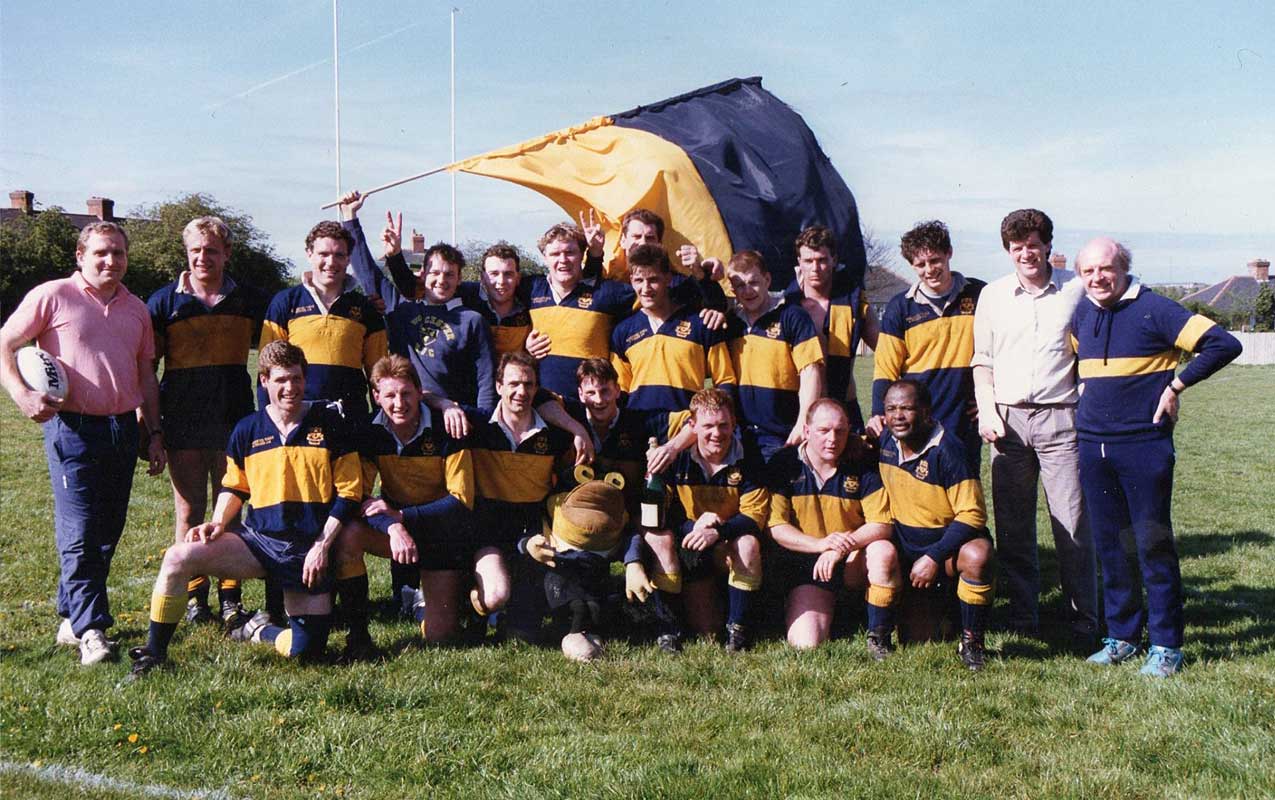Customer login
Not registered yet?
Register now! It is easy and done in 1 minute and gives you access to special discounts and much more!
Significant Irishmen 1971 - Present
Phil Collins WRFC 1971 – 1987
Having come to Worcester to train as a secondary science teacher, I spent 3 blissful years playing a whole host of sports and studying very little. (I qualified with the strategy of attending every lecture and getting up for breakfast every day!) My main sporting passion was rugby and having been offered a job at Nunnery Wood Secondary after my final practice there I knocked on the door at Worcester RFC and my first run out was for the United XV against Pershore 1 st team. Something must have gone well as I was invited to play in the Centenary XV against the President’s XV.
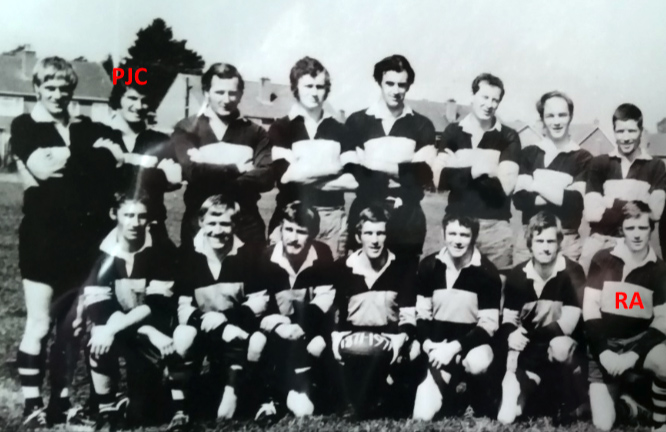
It was during this match that I played in the centre outside the number 10 Roy Adams: an Irishman. The most noticeable difference was that the physicality of the club game was much more noticeable than that of playing college rugby and playing as a team was more important than playing as an individual – in other words you looked out for each other. In those early weeks I felt Roy was doing just that and I vividly remember driving him to a 7’s competition at Lichfield and he saying that the best way was through the middle of Birmingham, something I would never have done myself. Roy moved on early during the 1971 season not sure to where. Another feature of WRFC at the time was the many nicknames floating about, mainly originating from DIR (Dave Robins) - for example Mike SCOOP Robins as he used to send match reports to The Green Un, the Saturday Evening local sports paper; Graham POLISH Dewars, a Kiwi, get it!; R.A.D. RADIATOR Montgomery; Terry TROTSKY Skyrme after an after-match session in a pub at the end of the M50 where he preached his radical socialist views to a drunken 1 st XV pack! Coming back to my significant Irish mentor Roy, being early in the seventies when the troubles in Ulster were at a high, DIR’s black humour christened him Roy B****R Adams. I’ll let you fathom it out
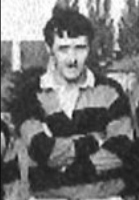 So to the second and significant Irishman. At the end of the time at Bevere, if my memory is correct, the 1stXV was coached by Dave Walters who had roots in Cheltenham. This may have some bearing on the selection of the next coach, Andy Hamill, who originally hailed from Ballymena and was playing some rugby in the Cheltenham area. Andy is pictured left in the President’s XV against Old Patesians in a match to celebrate the opening of their new ground in September 1975. He was billed as a “…genial utility back from Ireland…”. Incidentally, to his left in the picture was Roger Hosen, an English international with a prodigious boot both from out of the hand and on the deck. Incidentally, I remember a Sixways team training session taken by the same Roger Hosen and have never been so shattered in my life! Perhaps Andy negotiated this during the team photo! (Pst., do you want to show them lads at Worcester what a real training session feels like!!) During the move to Sixways in 1975 Andy was at the coaching helm for our new adventure. He was a great advocate of running and handling and being a kicking full back I was very sensitive to him constantly shouting “Youse yur haaands!!!”. Andy eventually moved back to Ballymena Ireland and I remember asking him why he was moving and his reply was that he was offered a significant coaching role back at his home club and “why would I not want to move back?”
So to the second and significant Irishman. At the end of the time at Bevere, if my memory is correct, the 1stXV was coached by Dave Walters who had roots in Cheltenham. This may have some bearing on the selection of the next coach, Andy Hamill, who originally hailed from Ballymena and was playing some rugby in the Cheltenham area. Andy is pictured left in the President’s XV against Old Patesians in a match to celebrate the opening of their new ground in September 1975. He was billed as a “…genial utility back from Ireland…”. Incidentally, to his left in the picture was Roger Hosen, an English international with a prodigious boot both from out of the hand and on the deck. Incidentally, I remember a Sixways team training session taken by the same Roger Hosen and have never been so shattered in my life! Perhaps Andy negotiated this during the team photo! (Pst., do you want to show them lads at Worcester what a real training session feels like!!) During the move to Sixways in 1975 Andy was at the coaching helm for our new adventure. He was a great advocate of running and handling and being a kicking full back I was very sensitive to him constantly shouting “Youse yur haaands!!!”. Andy eventually moved back to Ballymena Ireland and I remember asking him why he was moving and his reply was that he was offered a significant coaching role back at his home club and “why would I not want to move back?”
Those of you young enough to remember the summer of 1975 will also remember that it was the hottest for 27 years and Britain was in the grip of a gruelling heatwave and drought. Pre- season training took place as usual but there was an interesting twist to it. Owing to the nature of the soil at Sixways, huge cracks appeared on the main pitch that was scheduled for the official opening. There was no promise of immediate rain so it took lorry loads of sand, shovels, wheelbarrows and players acting as navvies to fill them in! I do not exaggerate when I say that we had to be careful using the shovels as some of the cracks were so deep and wide that there was a significant danger in losing them down the chasms.
Now to the third significant Irishman; CMH (Mike) Gibson. My first recollection of seeing him was at Twickenham, not in Irish colours but running the touch line wearing the light blue blazer of the immediate ex Captain of Cambridge. It was tradition at the time for the ex-Captains of Oxford and Cambridge to perform this duty in the following year’s Varsity match. I am not sure who managed to engineer it but Mike agreed to guest for Worcester in the match against Birmingham to celebrate the opening of the new clubhouse. He wore the number 12 jersey and his rugby colleague, Steve Kirkwood, was at outside half.
Mike was, and still is, a legend of the rugby world. 69 caps for Ireland, 5 Lions Tours, inducted into the IRB Hall of Fame in 2011 and Brian O’Driscoll’s summing up says it all; “At times when Irish rugby wasn't successful Mike was always the shining light. He played international rugby for 15 years and that speaks volumes about him. He was a magnificent player and a true ambassador for the game”.
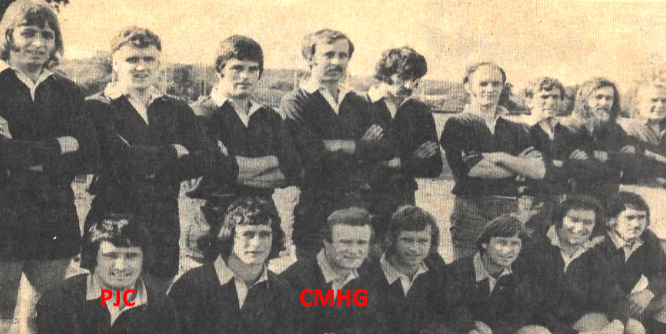
Here I was selected to play alongside him, what a privilege. Several memories come back to me. I felt embarrassed that we were having to play on such a substandard surface, criss-crossed with veins of sand – he never mentioned it once! In those days the team warm up took place in the changing room and Mike was asked to take it. Boy what a warm up. He had hold of the match ball during it and it was as if it was glued to his hands as he moved it between his ankles, behind his head and anywhere else you could move a ball. The match itself remains a bit of a blur and I know we lost but I do remember him taking a drop out from the centre which was the procedure after an opponents unconverted try. As we were jogging to the centre spot he whispered “Phil go left”. I haven’t the faintest idea how he knew my name but such was the attention to detail that he obviously went to prior to any match he could have probably named all of us. He feigned to kick right and at the last minute he turned and sent a perfect drop kick that landed just on the 10 yard line which I managed to get a hefty foot to and after a further piece of footwork we were well in to the opponents 25. With me catching breath after the chase he came up beside me and politely said something like “…don’t rest now get back to your position and rest before the next play…” so simple! In the end we lost the game but to me this was compensated for by playing alongside a great.
Coincidentally, a season or so ago I was sitting in my seat in the West Stand during one of the cup competitions against an Irish side. I happened to notice the great man walking by in front of the stand. He stopped for some reason and was looking at what was happening pitch side. Never one to miss an opportunity I strolled up and engaged in conversation and we reminisced about the 1975 match and the modern game in general. I used the term earlier, but what a legend!
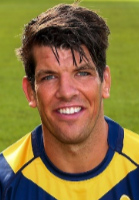 Now to Irish man no 4 in the professional era. I have a view that all good sides have an enforcer in their side. By that I mean that they have a player who will stand no nonsense from opponents but will play within the laws of the game and inspire their team mates. They are classically from the front 5. Jason Leonard, Joe Marler and Dan Cole come to mind as front rowers, Martin Johnson, Colin Meads and Paul O’Connell as locks. Who would fit the bill for Worcester Warriors? It will not surprise you that I put Donnache O’Callaghan as a prime candidate. 98 Caps for Ireland and 2 British and Irish Lions Tours says it all about his accomplishments as a player. Worcester were fortunate in capturing his services for the twilight of his career. During his captaincy year (2017/18) for the Warriors, a win against Harlequins in April 2018 secured Warriors Premiership status for the following season, Donnache was in the thick of it. Not only did he inspire his team mates but after being replaced, he appealed to the East Stand for support and was taken into their hearts for the outstanding job that he had done for the club in his short stay.
Now to Irish man no 4 in the professional era. I have a view that all good sides have an enforcer in their side. By that I mean that they have a player who will stand no nonsense from opponents but will play within the laws of the game and inspire their team mates. They are classically from the front 5. Jason Leonard, Joe Marler and Dan Cole come to mind as front rowers, Martin Johnson, Colin Meads and Paul O’Connell as locks. Who would fit the bill for Worcester Warriors? It will not surprise you that I put Donnache O’Callaghan as a prime candidate. 98 Caps for Ireland and 2 British and Irish Lions Tours says it all about his accomplishments as a player. Worcester were fortunate in capturing his services for the twilight of his career. During his captaincy year (2017/18) for the Warriors, a win against Harlequins in April 2018 secured Warriors Premiership status for the following season, Donnache was in the thick of it. Not only did he inspire his team mates but after being replaced, he appealed to the East Stand for support and was taken into their hearts for the outstanding job that he had done for the club in his short stay.
I hope that I have truly reflected the influence that the Irish contingent have had on the Club’s and my personal development.
